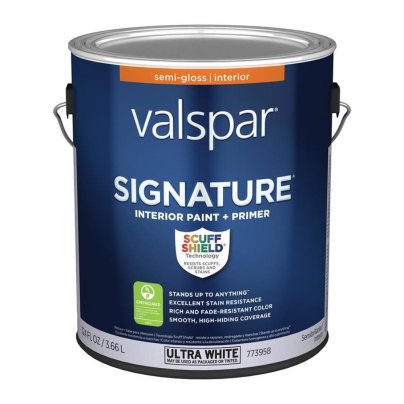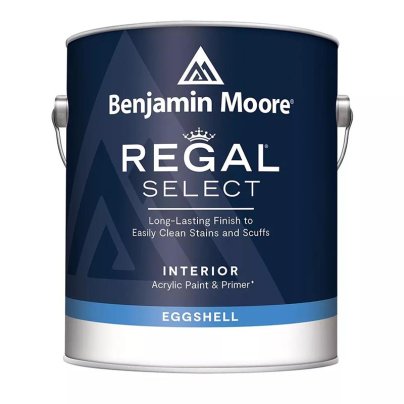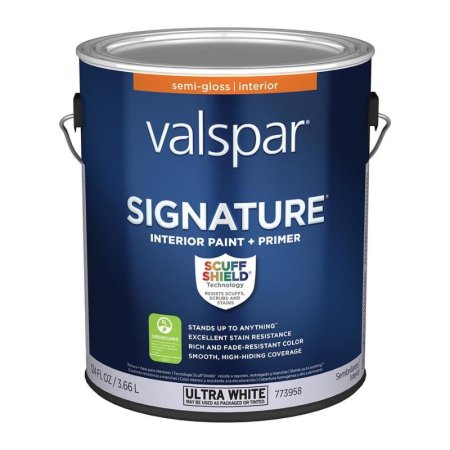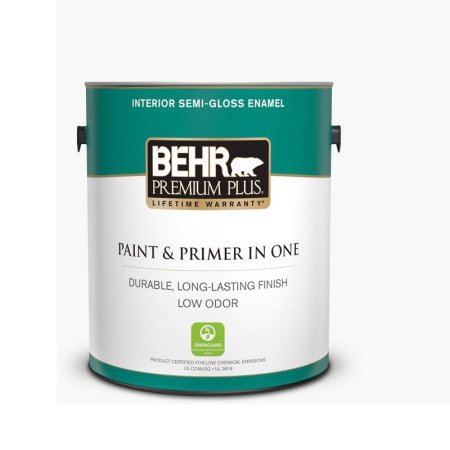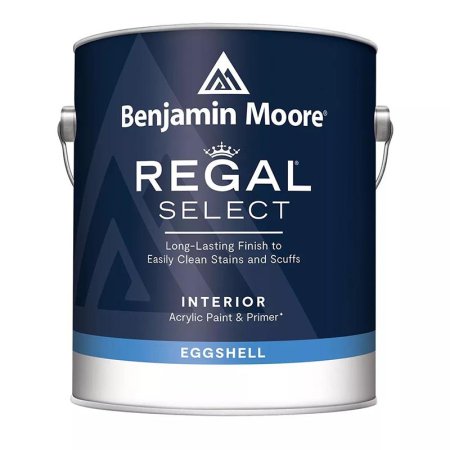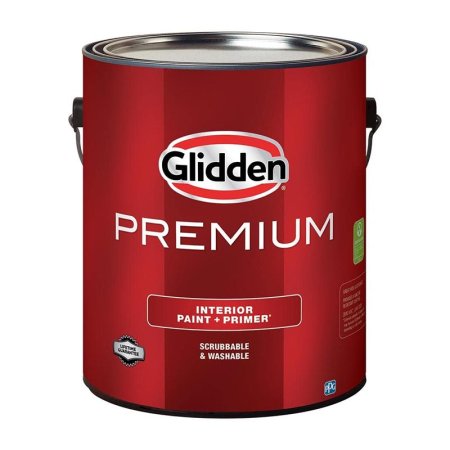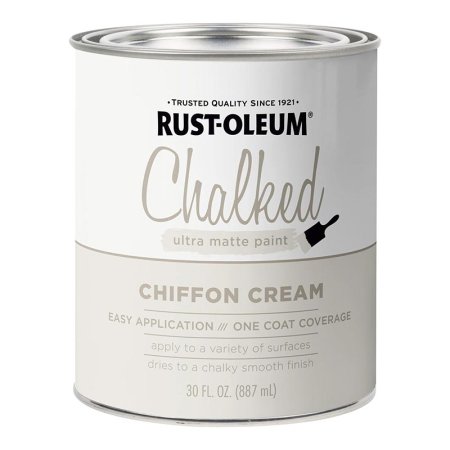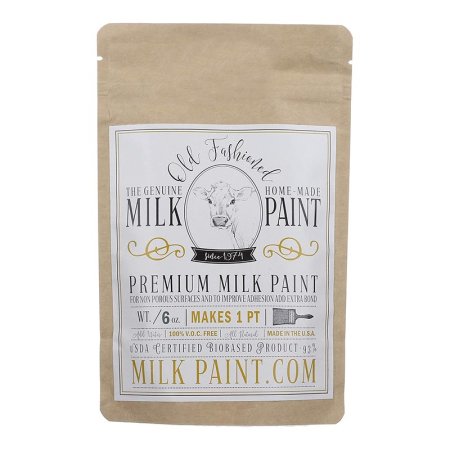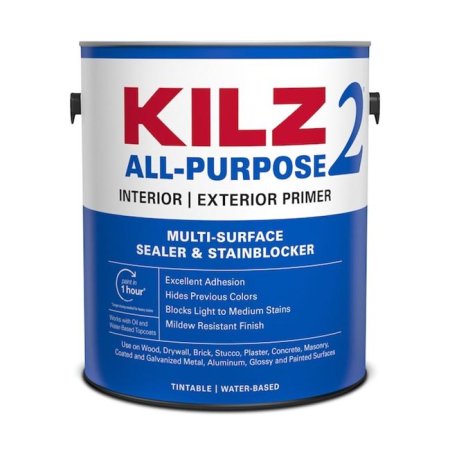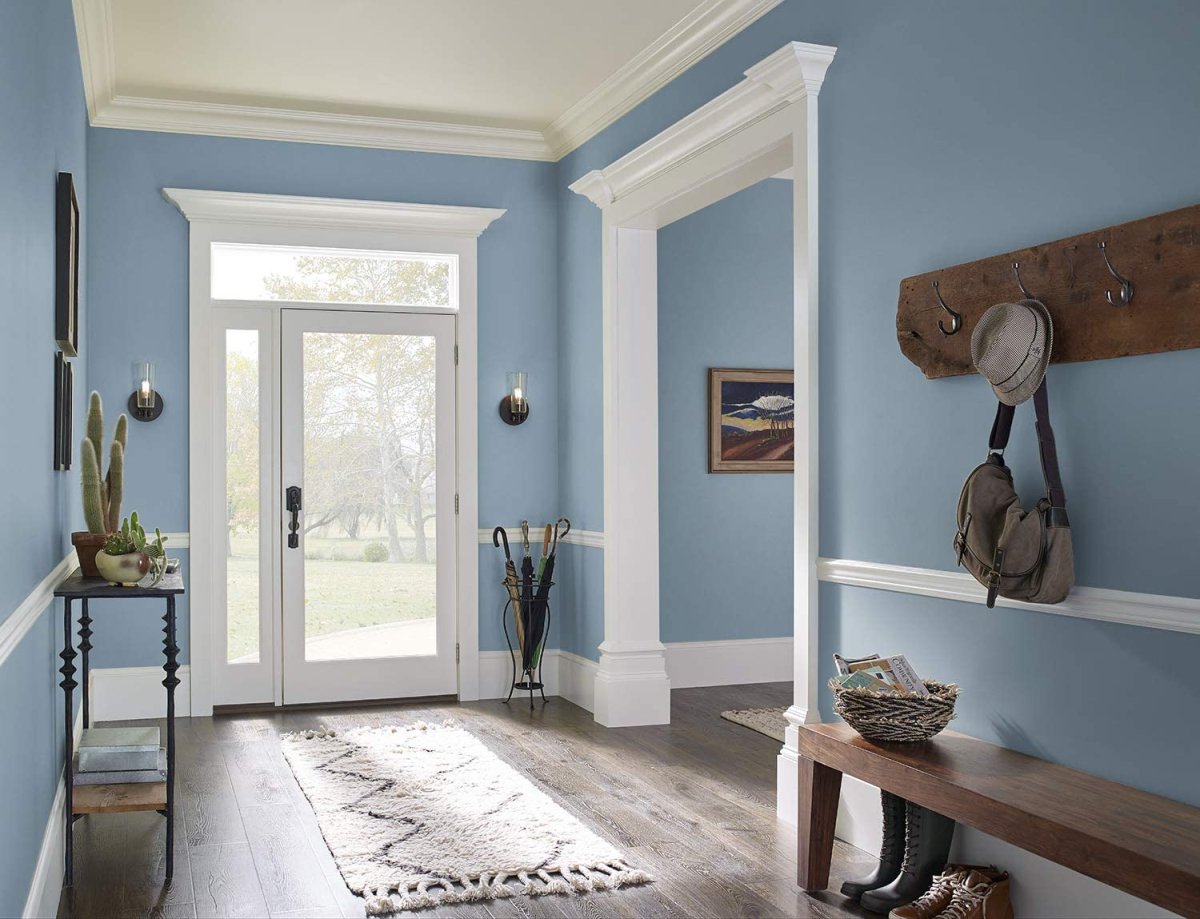
We may earn revenue from the products available on this page and participate in affiliate programs. Learn More ›
Most of us don’t think much about paint beyond its color, but there are chemicals in paint called volatile organic compounds (VOCs) that can be toxic in non-low-VOC paint. VOCs are also found in paint stripper, primer, and household items like carpet, upholstery, and some furniture.
New eco-friendly paints are called low-VOC paints, and they contain fewer volatile chemicals than regular paints. The best low-VOC paint for you depends on the project you’re working on and the desired finish type.
Our best low-VOC paint is the Valspar Signature Semi-Gloss Tintable Paint & Primer for its fast-drying, tintable formula; washable and scrubbable finish; and Greenguard certification. However, all of the hands-on tested or selected products on this list were thoroughly vetted for effectiveness and reliability.
Below we’ve detailed what to look for when shopping for the best low-VOC paint along with our selected and hands-on tested recommendations for some top options.
- BEST OVERALL: Valspar Signature Semi-Gloss Tintable Paint & Primer
↓ Jump to Review - BEST BANG FOR THE BUCK: Behr Premium Plus Ultra Pure White Interior Paint
↓ Jump to Review - UPGRADE PICK: Benjamin Moore Regal Select Interior Paint
↓ Jump to Review - KITCHENS AND BATHROOM PICK: Glidden Premium Base 1 Flat Interior Latex Paint
↓ Jump to Review - BEST FOR FURNITURE: Rust-Oleum Ultra Matte Interior Chalked Paint
↓ Jump to Review - BEST FOR THE ENVIRONMENT: Old Fashioned Milk Paint Non-VOC Powder Paint
↓ Jump to Review - BEST PRIMER: Kilz 2 All-Purpose Interior/Exterior Paint
↓ Jump to Review
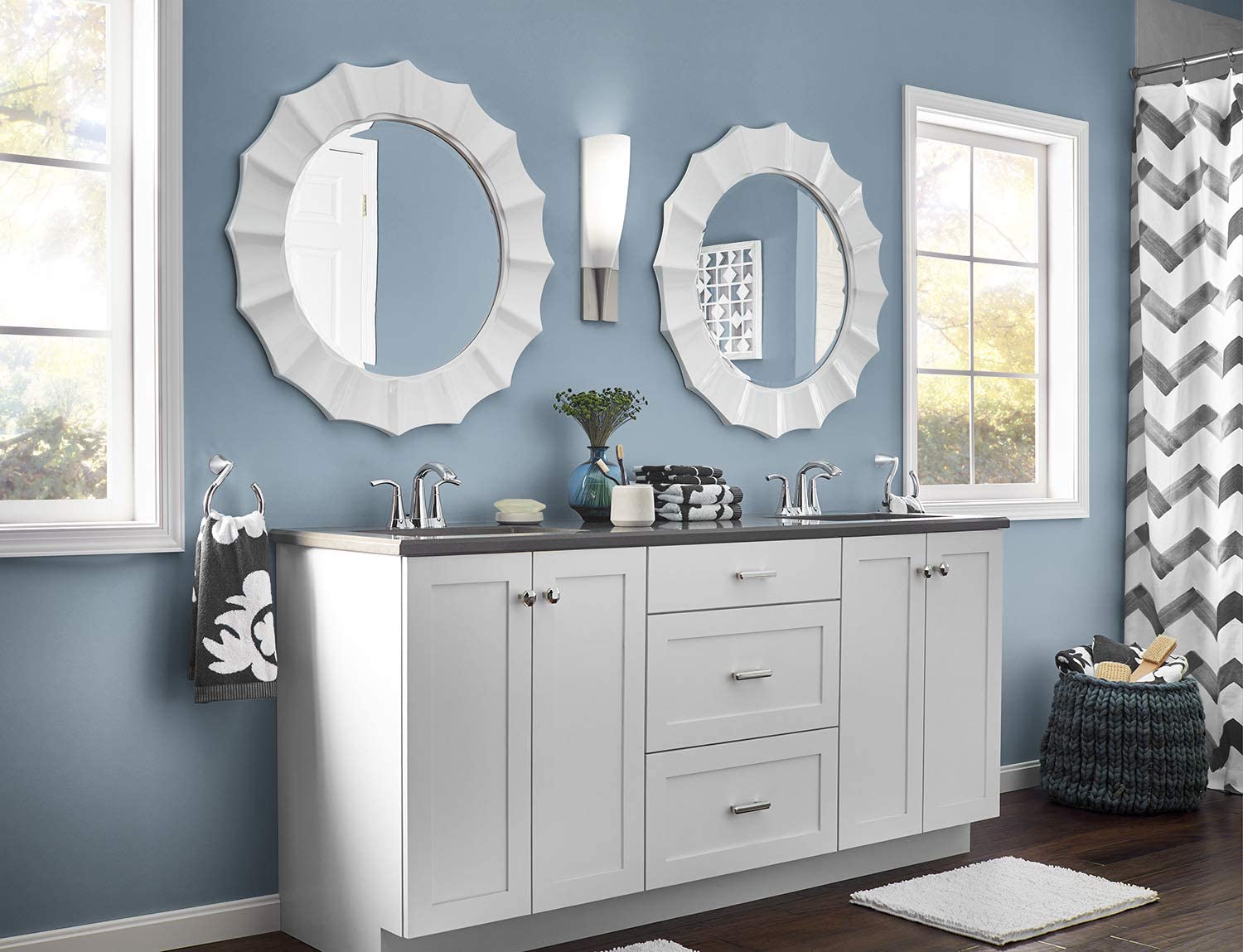
Low-VOC vs. No-VOC Paint
Before shopping for your paint project, it’s important to clarify the differences in the amount of toxic compounds contained in low-VOC paints compared to those classified as no-VOC.
Low-VOC
With low-VOC paint, there are no government guidelines for certifying a paint as such. But, some manufacturers have limited the amount of toxins in their low-VOC paints to less than 50 grams per liter (g/L) for flat finish paints and no more than 110 g/L for nonflat finish paints.
Manufacturers who follow that guideline can have their paint products certified as GS-11 by the nonprofit organization Green Seal. Their paint can also earn a Greenguard Indoor Air Quality Certification from Underwriter’s Laboratories (UL), a nonprofit safety organization; this indicates it is tested annually and complies with voluntary low-VOC standards.
No-VOC/Zero-VOC
No-VOC or zero-VOC paint products contain minimal—if any—volatile organic compounds, but they may contain trace amounts, up to 5 g/L. The color you tint the paint may contain small amounts of VOCs, but these are still among the least toxic paints on the market.
A handful of VOC-free paints are available from major manufacturers. You can also find natural paints, such as milk paint that will not off-gas any fumes.
How We Chose the Best Low-VOC Paints
The best low-VOC paint can increase your indoor air quality by providing low chemical emissions in homes with pets and children while still performing like conventional paints. Our hands-on tested or thoroughly researched picks for the best low-VOC paint generally contain fewer than 50 grams of volatile organic chemicals per liter, offer good coverage, can be applied with a brush or roller, and will clean up with just soap and water.
The above picks also vary between low-VOC and VOC-free paints to satisfy your personal preference. Though a few of these options require prep or dilution before applying, most come in large quantities, multiple color options, and varying finishes. Many of the above paints are also compatible with metal, ceramic, canvas, fiberglass, and trim.
Drying time is also prioritized in this list as many of these picks only take 30 minutes to 1 hour to dry after applying the first coat. Finally, select paint options also offer mildew and mold resistance.
Our Top Picks
Whether you need a low or no-VOC paint, the list below is filled with viable tested or thoroughly researched options for your next bathroom, kitchen, bedroom, or whole-house upgrade. Each of our top picks comes with a list of notable product specs as well as some pros and cons.
Best Overall
Valspar Signature Semi-Gloss Tintable Paint & Primer
Pros
- Tintable to any color required for peak versatility; the fade-resistant formula is long lasting
- Fast drying; dry to the touch in 1 hour and a new coat can be added in 2 hours
- Comes in multiple finishes and quantities depending on the amount of product needed
- Durable, washable, and scrubbable after application to keep walls looking their best
Cons
- Not suitable for use on furniture
- Not pretinted or stain blocking; may not meet some users’ needs
Product Specs
- VOC level: Low-VOC
- Color and finish: Semi-gloss
- Drying time: 1 hour (first coat), 2 hours (subsequent coats)
If you’re looking for a combination paint and primer product, look no further than Valspar Signature semi-gloss tintable interior paint. This low-VOC paint bears the Greenguard certification for low chemical emission standards. It has a dry time of 1 hour for the initial coat and 4 hours for subsequent coats.
This Valspar Signature paint comes in a semi-gloss finish, making it durable and washable, and you can have it tinted in your choice of colors. One gallon covers up to 400 square feet and it is also safe to use on fiberglass, metal, and trim. Plus, this paint is tough enough to be washed or scrubbed if needed.
Best Bang for the Buck
Behr Premium Plus Ultra Pure White Interior Paint
Pros
- Versatile option; can be tinted for creating multiple color options and comes in various finishes
- Comes primer mixed for 2-in-1 functionality; creates excellent adhesion for longevity
- Suitable for furniture, cabinets, shutters, doors, trim, cabinets, and more
- Mold- and mildew-protecting formula for added convenience
Cons
- Not recommended in living rooms, bedrooms, or hallways
Product Specs
- VOC level: Low-VOC
- Color and finish: Semi-gloss (comes in multiple finishes)
- Drying time: 1 hour (first coat), 2 hours (second coat)
You don’t have to spend a lot to get quality low-VOC paint. The Behr Premium Plus Ultra pure white interior paint delivers a durable finish that’s well suited for cabinets, doors, trim, furniture, and more. This paint is Greenguard certified and contains mold and mildew inhibitors, making it suitable for high-humidity spaces like bathrooms and laundry rooms.
The Behr Premium Plus paint comes in multiple finishes with primer mixed in so there’s no need to apply a separate base coat. This eco-friendly paint dries to the touch in 1 hour, and you can apply a second coat after 2 hours. It comes in bright white but can be tinted, and 1 gallon covers up to 400 square feet.
Get the Behr low-VOC paint at The Home Depot.
Upgrade Pick
Benjamin Moore Regal Select Interior Paint
Pros
- Comes in multiple finishes and colors to suit a given user’s space and preference
- Integrated with stain-release technology that allows the user to scrub and wash walls when stained
- Mildew- and fade-resistant formula provides peace of mind
- Dries to the touch in an hour and subsequent coats can be applied in 2 hours
Cons
- Expensive compared to similar options on the market
Product Specs
- VOC level: Low-VOC
- Color and finish: Eggshell, flat, ulti-matte, satin, and semi-gloss
- Drying time: 1 hour (dry to the touch), 2 hours (dry to recoat)
Neither bacteria nor direct sunlight will mar a coat of this mildew- and fade-resistant line of paints. This high-end acrylic paint and primer combo comes in a wide variety of colors to suit different interiors. The water-based paint is classified among low VOC paints and is formulated with stain-release technology, so it’s easy to wipe clean with minimal scrubbing. It also comes with a Green Seal certification.
This nontoxic interior paint dries in 1 hour, leaving virtually no brushstrokes behind. It’s pricier than other acrylic paints, but the quality formulation makes it worthy in the long run.
Kitchens and Bathroom Pick
Glidden Premium Base 1 Flat Interior Latex Paint
Pros
- Acts as a paint and primer; tintable formula can be made into any color desired
- Comes in multiple finishes, including eggshell, satin, semi-gloss, high-gloss, and more
- Durable and mildew-protecting formula provides peace of mind
Cons
- Some tints contain VOCs; may not be ideal for some users’ preferences
Product Specs
- VOC level: No-VOC
- Color and finish: Tintable; comes in many finish options
- Drying time: 1 hour (dry to the touch)
For a durable finish and protection against mildew, check out this Glidden Premium paint. This paint is zero-VOC, but the tint you choose to color this paint may add a small amount of VOCs, especially if you opt for hues of red, yellow, or orange.
This Glidden Premium nontoxic paint is an interior paint and primer combo, and 1 gallon will cover up to 400 square feet. It’s available in flat, eggshell, satin, semi-gloss, high-gloss, and ultra-flat finishes. Plus, this paint takes 1 hour to dry to the touch and is durable enough to scrub and wash if needed. This option also has a selection of exterior paints.
Get the Glidden low-VOC paint at The Home Depot.
Best for Furniture
Rust-Oleum Ultra Matte Interior Chalked Paint
Pros
- Dries with a chalk-like smooth finish and is easily distressed for a vintage look
- Can be used on furniture, wood, metal, ceramics, canvas, and other decor
- Quick drying time of just 30 minutes; new coats can be applied quickly
- Comes in 12 colors to suit a variety of user preferences
Cons
- Primer may be needed for bare wood, redwood, mahogany, and fir
- May not be suitable for drywall or trim
Product Specs
- VOC level: Low-VOC
- Color and finish: Ultra matte
- Drying time: 30 minutes (dry to the touch)
If you’re looking for chalk paint, consider Rust-Oleum Ultra Matte interior paint. This low-VOC paint dries to a soft, matte finish and is suitable for use on your favorite furniture and home decor projects. The paint features high adhesion for metal, ceramic, canvas, and prepainted items, and it dries to the touch in just 30 minutes.
The Rust-Oleum paint comes in a variety of premixed colors in a 30-ounce can, which is about a quarter of a gallon. One can provide up to 150 square feet of coverage.
Get the Rust-Oleum low-VOC paint at Amazon, The Home Depot, Walmart, or DK Hardware.
Best for the Environment
Old Fashioned Milk Paint Non-VOC Powder Paint
Pros
- Nontoxic, all-natural paint is biobased; suitable for nurseries and homes with children and pets
- Can be mixed with custom tints to create any color a user desires
- Texture is customizable; can be distressed or glazed for a vintage look
- Comes in 32 color options for excellent user-friendliness
Cons
- Custom pigments are sold separately
- May require a brush or foam applicator for proper application
- Requires dilution before use; does not provide the same user-friendliness as some other options
Product Specs
- VOC level: No-VOC
- Color and finish: Matte
- Drying time: 30 minutes (dry to the touch)
For a completely VOC-free painting experience, try Old Fashioned Milk Paint non-VOC powder paint. This nontoxic, all-natural paint comes as a powder you mix with water to use. It’s available in 32 colors, or choose a white base and add your own natural pigments, such as ground mica pigment powder (sold separately) for a custom look.
For the best results, apply Old Fashioned Milk Paint with a brush or foam applicator. This paint is also suitable for rag-type applications to achieve a textured, glazed, or distressed finish. Due to the variations in texture, this paint is not ideal for application with a spray gun. Coverage will depend on the thickness of the paint when mixed.
Get the Old Fashioned Milk Paint low-VOC paint at Amazon.
Best Primer
Kilz 2 All-Purpose Interior/Exterior Paint
Pros
- Made for both indoor and outdoor use for excellent versatility; suitable on walls, wood, plaster, paneling, wallpaper, masonry, and more
- Capable of sealing surfaces, promoting adhesion, and blocking stains and mildew
- Comes in multiple sizes depending on the intended coverage area
- Can be applied on most water-based or oil-based paints
Cons
- May not hide some deep stains; users may need to apply more than 1 coat
Product Specs
- VOC level: Low-VOC
- Color and finish: Primer
- Drying time: 30 minutes (dry to the touch), 1 hour (dry to recoat)
Though paint does a lot of the heavy lifting when improving a space, a primer like this option from Kilz can ensure that paint lasts longer and looks better. Coming in 1-gallon, 1-quart, or 13-ounce sizes, this indoor/outdoor primer is made to seal porous surfaces, promote adhesion, block stains and mildew, and hide any previous water-based or oil-based paints on walls, wood, plaster, paneling, wallpaper, masonry, brisk, and other building materials.
This low-VOC option is dry to the touch in 30 minutes and can be ready for another coat in 1 hour. The 1-gallon size provides enough product for 300 square feet of space but can cover a maximum area of 400 square feet.
What our tester says: Debbie Wolfe, Bob Vila product tester and writer, notes in The Best Paint Primers that “in testing, it left a smooth base coat on drywall and bare wood. It did a moderate job blocking dark stains on walls, but it effectively blocked lighter stains like pencil marks, minor scuffs, and markers. We recommend using Kilz 2 for priming old walls before repainting or for any exterior surface as a base coat for exterior paint. It’s also handy to use a primer for craft painting projects.”
Get the Kilz low-VOC paint at Lowe’s, Ace Hardware, The Home Depot, or Walmart.
Jump to Our Top Picks
What to Consider When Choosing a Low-VOC Paint
Interior paints come with an oil or water base, but the former type contains more VOCs. Eco-friendly, nontoxic paints usually contain latex or acrylic water-based formulas, with various elements to consider based on the nature of your project. Keep the following paint characteristics and features in mind when making a choice:
Durability
How durable an interior paint is depends on several factors; note that color fastness (fade resistance) is a separate topic discussed below.
- Paint Quality: The best latex and acrylic paints contain premium ingredients, such as more acrylic solids and pigments. They’re often thicker and more viscous (sticky) than lower-quality paints, making them stronger and longer lasting.
- Number of Coats: More coats of paint will render a more durable surface. Most interior paints involve two coats, though darker colors may require a third to even out the finish.
- Even mixing: Ingredients in paint can settle to the bottom of the can over time. If it’s been a while since the paint was purchased, stir it thoroughly before use to ensure the compounds perform effectively together.
- Application: Applying paint with a roller or brush instead of a sprayer can leave a thicker, more durable coating on a surface. More information on paint application can be found below.
- Finish: In general, the higher the gloss, the more durable and washable paint is. If you’re unfamiliar with paint finishes, consult the next section of this guide.
- Treatment(s): Some interior paint is formulated specially for certain environments. For instance, paint labeled as “mildew-resistant” is preferred for humid regions and bathrooms, while “UV-resistant” paint is a sensible option for sun-filled rooms.
Amount of VOCs
Volatile organic compounds are chemical gases that have short- and long-term health effects, which is why the VOC levels in paint should be a top consideration when selecting an ideal paint. The federal government restricts flat paint with more than 250 grams per liter and 380 grams per liter for other finishes. As such, the best low-VOC paint will have between 50 and 100 g/L of VOCs, which is safer than most other paint options.
Colors, Finishes, and Tints
Low-quality paint may contain cheap pigments such as talc, clay, and silica that tend to fade over time. This is especially true if the painted surface has a southern exposure and receives direct sun. Dark colors are also more likely to fade than lighter hues when exposed to sunlight.
Beyond choosing an interior paint color, settling on the right finish is also important. Paint finishes vary in visual effect and VOC content, making them more or less suitable for certain spaces:
- Flat/matte finishes are at the lowest level of glossiness. This type of finish is nonreflective, allowing it to hide surface inconsistencies and appear smooth and velvety. This neutral effect makes a flat finish particularly popular for furniture and kitchen cabinets.
- Eggshell and satin finishes have more reflectivity and sheen in comparison, but they don’t shine nearly as bright as semi- and high-gloss. This middle ground makes them ideal for bathrooms, kitchens, and bedrooms where natural light may be scarce.
- Semi-gloss and high-gloss finishes are designed to accent a room with a highly reflective formula. Use these finishes on doors, moldings, window frames, baseboards, and other trim. The reflectivity focuses the eye on the main decor, similar to the way a border or picture frame draws the focus to the centered art.
Paints with a harder, shinier finish, like glosses and enamels, contain higher VOC levels because those surfaces are created by toxic chemicals and solvents. You’ll find the most low-VOC options in flat paints, and a growing variety of satin and semi-gloss options are available as well.
Coverage and Drying Time
Some downsides to low-VOC paints are reduced coverage and longer dry times. However, there are newer varieties with primer included for better coverage that can also dry quickly. Paint manufacturers are improving these eco-friendly paints, but you may experience longer dry times with some brands (up to a few days for some types of milk paint) and may have to wait longer to apply a second coat.
If you’re covering a dark wall with a lighter color paint, you may need three coats of low-VOC paint for full coverage. Standard low-VOC paint coverage is 300 to 400 square feet per gallon of paint.
Prep and Application
For optimal adherence, the interior surface must be clean and dry, as paint does not adhere well to damp surfaces. Any loose or peeling paint should be scraped away. Smaller projects, such as pieces of furniture, can be prepped using a paint stripper to remove existing paint. Draping nearby objects with drop cloths keeps them protected from splatters, and using painter’s tape helps create a clean, crisp paint edge.
Most interior paint is easy to apply with a paint brush or roller. Using a paint sprayer is the quickest application method, but these tools risk accidental overspray. A combination of techniques can be used for best results, such as spraying or rolling on a coat of paint followed by brushing in a process known as “back brushing.”
FAQs
Still have questions about low-VOC paint? Here are some answers to help you pick the best low-VOC paint for your project.
The federal government does not set guidelines for low-VOC paint, but some paint manufacturers have voluntarily agreed to cap the amount of VOCs in their paint products to less than 50 g/L.
No-VOC paints are recommended for use in an infant’s room since these emit no harmful chemicals to a developing immune system with chemical sensitivities. Though low-VOC paints are safe for adults, these chemicals are not ideal for a baby’s room.
It may contain chemicals and solvents not classified as volatile organic compounds. For the least toxic paints, look for all-natural materials listed on the label.
Low-VOC paints have much less odor than other paints, but they may still have a slight smell. However, this smell should dissipate quickly after application.
Drying time depends on the brand. Some low-VOC paints dry to the touch in one hour and can be recoated in two hours, while others may require a day or more to dry completely.
Low- or no-VOC paints are typically water-based and tend to be sturdier; they can last years without needing another coat. However, users will want to consider a primer to ensure that this nontoxic wall paint adheres to the surface correctly.
Though low-volatile organic compound paint has fewer chemicals, it does not last as long as some other options on the market. A new coat should be applied more often to ensure that the paint retains its coverage.
